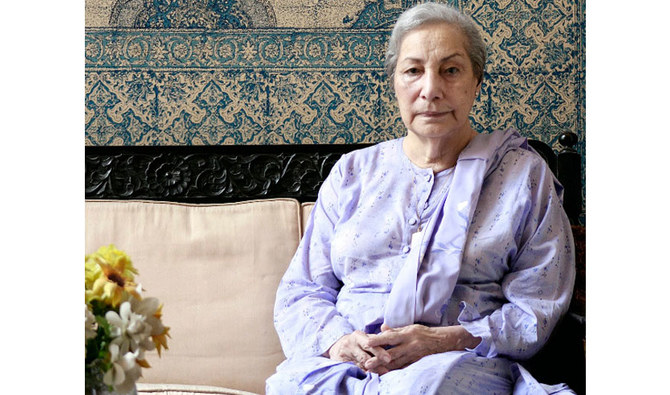ISLAMABAD: Two years ago, Zeenat Haroon Rashid, a symbol of women empowerment in Pakistan, passed away, and her daughter, Syra Rashid Vahidy, decided to institutionalize the Zeenat Haroon Rashid Writing Prize for Women to award, encourage and empower female Pakistanis writing in English.
“After my mother passed away in 2017, I was looking for a way to honor her memory through a charitable cause,” Vahidy told Arab News. “People often ask me why I chose to establish a writing competition in her name since she herself was not a writer. While it is true that my mother was not educated beyond Senior Cambridge [equivalent to today’s GCSE], her passion and enthusiasm for reading and learning for its own sake was unparalleled. I know it would have pleased her enormously to have a writing prize founded in her name.”
A patriot and game changer, Rashid was an early pioneer of women’s rights and representation in Pakistan. She was a founding member of the Women’s National Guard during the struggle for independence in 1947, and spent her life as an activist pursuing equality for Pakistani women.
With the primary funding being done by Vahidy herself, the prize is set for Rs100,000 and will be awarded annually to promote and support women who wish to pursue writing as a career. The prize will be awarded at an event in Karachi in mid-January 2020.
“Our judges are always looking for an original voice, not necessarily an original theme or episode but even an ordinary subject examined from an extraordinary angle or aspect,” said Vahidy. “And as always we are looking for a facility with words and imaginative expressiveness that is truly excellent.”
The writing competition, which is for pieces written in English, has encouraged women of 18 and above from all over Pakistan to participate and write about anything they want. When asked what would constitute a great piece, Vahidy said signature style and a strong voice were the key.
“The best writing [in the competition] could be favorably compared to published English writings from anywhere in the English speaking world,” she said. “It is sophisticated and written articulately. All our judges have commentated how difficult it was to choose from the entries on our long list as each was very well written.”
Vahidy also said that following the announcement of the winner, the fund plans to put shortlisted submissions on their website for the public to read. In encouraging all women to write, she is carrying forward her late mother’s legacy to empower them.
“I am forever indebted to her for all that she has given me in life,” Vahidy told Arab News. “Love and security, a passion for intellectual pursuits such as reading and bridge, a fierce sense of social justice and gender equality, and above all the self-confidence to act on my ideas and beliefs, even if it means defying tradition or convention.”
With a previous career in journalism and advertising in Pakistan, Vahidy is now based in the United Kingdom with a business interest in a college of music in London.













